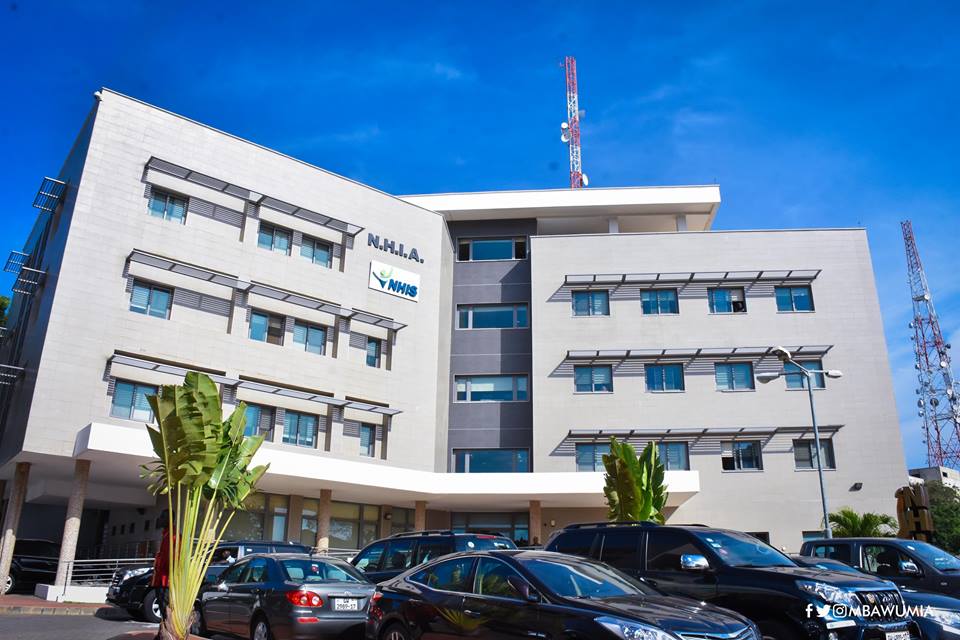On July 7, 2025, the National Health Insurance Authority convened a high-level committee meeting at its Accra headquarters to assess the early performance of two flagship digital health platforms: the NHIS Electronic Healthcare Services Application (NeHSA) and the Electronic Pharmacy Platform (NEPP).
Chaired by Dr. Senanu Djokoto, Deputy Chief Executive for Operations at NHIA, the session brought together representatives from the Ghana Health Service, the Pharmacy Council, the Health Facilities Regulatory Agency, and technology partner Jams Info Systems to examine pilot data and chart a course for nationwide rollout.

The NeHSA initiative, first approved by the NHIA Board in 2022 and piloted in select regions in 2024, aspires to transform how Ghanaians access medical consultations through telehealth. Ebenezer Hooper, Senior Manager in the NHIA’s Management Information System Directorate, underscored that “there are issues of congestion at facilities, and the telehealth platform will help close
this gap,” enabling patients to obtain remote consultations when in-person appointments are challenging to secure. He explained that NeHSA’s core objectives are to enhance efficiency, transparency, and quality of care by providing users with on-demand virtual visits, digital record-keeping, and real-time diagnostic support.
Despite promising early indicators, pilot sites revealed barriers to adoption. Hooper noted that “limited awareness and adoption of the platform at facility and regional levels within the Ghana Health Service” hindered user engagement, pointing to the need for targeted outreach and training for both healthcare workers and community members. Stakeholders acknowledged that without robust communication campaigns and capacity-building workshops, telehealth’s potential to reduce wait times and streamline patient flow would remain underrealized, particularly in rural districts where digital literacy and infrastructure vary widely.
Complementing NeHSA’s virtual care model, the Electronic Pharmacy Platform (NEPP) aims to digitize prescription management and pharmaceutical services for Ghana’s 18 million active NHIS members. Developed by the Pharmacy Council in partnership with Rx Health, NHIA, and the Ministry of Health, NEPP centralizes e-prescription records and tracks medicine dispensation across credentialed community pharmacies.
In his closing remarks, Dr. Djokoto articulated the strategic imperatives behind these digital interventions. He cautioned that inefficiencies such as facilities billing NHIA for unavailable medicines pose a moral hazard to the health insurance fund.
“ One of the major challenges encountered during the pilot was the limited number of NHIA-credentialed community pharmacies available to support the platform ”
Ebenezer Hooper
“ These platforms are very important because they mitigate a certain moral hazard risk — when some facilities don’t have medicines and still bill the NHIA for them. It is in our best interest to ensure these platforms operate optimally ”
Dr. Djokoto
Beyond immediate operational gains, participants at the review meeting explored how NeHSA and NEPP could integrate with broader health system reforms. Discussions centered on interoperability with existing electronic medical record systems, data-sharing protocols with the Ghana Health Service, and the development of robust cybersecurity measures to protect patient privacy.
Officials recognized that achieving seamless digital transformation would demand sustained investment in network infrastructure, standardized data formats, and comprehensive user support mechanisms across public and private facilities.
Looking ahead, NHIA leaders committed to addressing pilot-phase shortcomings through a multipronged strategy. Plans include launching nationwide awareness campaigns in collaboration with regional health directorates, expanding the credentialing process for community pharmacies, and conducting hands-on training sessions for clinicians and pharmacists.
By mobilizing resources from development partners and leveraging public-private partnerships, NHIA aims to refine platform functionalities, monitor real-world usage metrics, and prepare for a phased scale-up that prioritizes high-need regions.
The pilot review underscores a pivotal moment in Ghana’s pursuit of a digitally enabled healthcare ecosystem. As NeHSA and NEPP advance from proof-of-concept to operational maturity, their success will hinge on effective change management, stakeholder engagement, and ongoing performance evaluation.
When fully optimized, these platforms promise to alleviate facility congestion, enhance pharmaceutical accountability, and bring equitable, high-quality care within reach of millions of Ghanaians, signaling a new chapter in the nation’s health insurance journey.
Source: News



